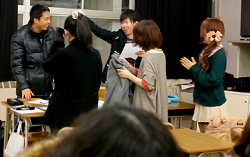The underlying philosophy of an institution serves as the beacon that guides the decisions of leaders and the actions of members. For example, a belief that the purpose of education is to help individuals realize their potential will likely have a different approach to education than an institution that believes that the purpose of education is to change society.
Elias and Merriam [7] classified the philosophical foundations of adult education programs into six categories as follows:
- Liberal adult education. Founded on classical philosophy, liberal adult education organizes learning on intellectual ability and has strongly influenced Western education in the U.S. and Britain.
- Progressive adult education. Linking political and social reform with education, progressive adult education reflects the philosophy of John Dewy, who influenced adult education pioneer Eduard Lindeman in his views that the purpose of learning is to drive social justice and human action.
- Behaviorist adult education. Using scientific management of learning to modify behavior, behaviorist adult education is based on the views of theorists like Watson, Taylor, and B. F. Skinner. It emphasizes setting learning objectives, controlling the learning process, and reinforcing learning.
- Humanist adult education. Based on humanist psychology founded by Abraham Maslow, Carl Rogers, and Rollo May, humanist adult education emphasizes the realization and transcendence of individual potential through freedom, autonomy, and self-direction in a trusting and cooperative environment. Humanism strongly influenced Malcolm Knowles’s andragogy and other models of American adult education programs.
- Radical adult education. Founded on collectivist movements for radical political and social change influenced by movements like Marxism, postmodernism, and feminism, radical adult education emphasizes learning as a means to indoctrinate and organize individuals for the interests of a collective against perceived oppression or existing power structures.





![Your brain can keep growing, adapting, and learning at any age, if you are willing to put in the effort [Image: Copilot]](/images/Images/best-years-for-adult-brain300.png)
